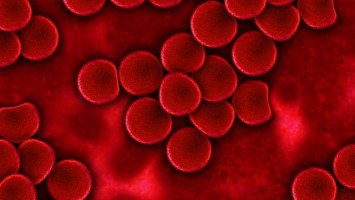
Multiple myeloma (MM) is the second most common type of blood cancer where cancer cells accumulate in the bone marrow, crowding out healthy blood cells.
Studies on MM development have traditionally focused mostly on DNA abnormalities, but a team of researchers from the Cancer Institute of Singapore (CSI Singapore) at the National University of Singapore has uncovered an association between RNA abnormalities and MM progression.
In particular, the team discovered that overexpression of ADAR1, a RNA-editing enzyme, and a modified gene caused by irregular RNA editing are key to MM progression and the development of resistance to current treatments.
Survival rates for MM patients have significantly improved over the years with multiple new drug discoveries for the disease.
However, about 10 to 15 per cent continue to be classified as high risk patients with low survival rates even when treated with the available drugs, as they develop resistance to the drug treatments.
Research on MM in the last decade was mostly aimed at understanding how DNA abnormalities contribute to the development of MM.
More recently, RNA abnormalities have also been found to be associated with different cancers such as gastric cancer and liver cancer.
As such, the team at CSI Singapore embarked on the study to investigate the biological implications of RNA defects on the progression of MM, so as to better understand how drug resistance develop in high risk MM patients.
The team's analysis revealed that that the MM RNA exists in an abnormally modified state, which consequently promotes MM progression in two ways.
The first is an abnormally elevated level of ADAR1 expression in myeloma cancer cells.
This overexpression of ADAR1 causes myeloma cancer cells to acquire stronger cancer properties.
The second is the irregular RNA editing of NEIL1, a gene associated with lung carcinoma and colorectal cancer.
NEIL1-edited myeloma cancer cells demonstrate a more cancerous nature where they lose the ability to repair DNA damage and show increased resistance to a standard MM drug.
Collectively, patients with high ADAR1 expression and compromised NEIL1 function were found to be less responsive towards the available treatments for MM.
Tapping on the newly established understanding, the CSI Singapore team also identified a group of drugs, known as DSB-inducing agents, which can be used to inhibit NEIL-edited cells, opening the door for new, effective treatment options for high risk MM patients.
Professor Chng Wee Joo, Deputy Director and Senior Principal Investigator at CSI Singapore, who led the study, said, "Our study has shown that RNA defects is both clinically and biologically relevant in MM, and by exploring these RNA abnormalities further, we may unravel more novel insights on MM molecular pathogenesis. Each piece of new knowledge derived will be key in helping to complete the puzzle of MM biology, paving the way for the development of innovative therapies that can curb drug resistance and raise the survival rates of high risk MM patients."
Source: National University of Singapore
The World Cancer Declaration recognises that to make major reductions in premature deaths, innovative education and training opportunities for healthcare workers in all disciplines of cancer control need to improve significantly.
ecancer plays a critical part in improving access to education for medical professionals.
Every day we help doctors, nurses, patients and their advocates to further their knowledge and improve the quality of care. Please make a donation to support our ongoing work.
Thank you for your support.